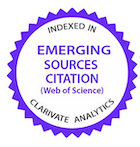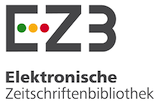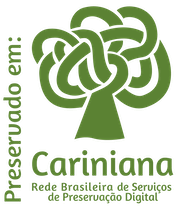Suplementação de glutamina e vitamina A em períodos críticos da gestação de fêmeas suínas
DOI:
https://doi.org/10.1590/1809-6891v25e-76945EResumo
Com a seleção e progresso genético, o perfil das fêmeas foi modificado e a prolificidade tornou-se a principal característica. Como consequência, o desenvolvimento fetal foi afetado pelo aumento do número de leitões, o que resultou em maior competição uterina por nutrientes e espaço. O objetivo deste estudo foi analisar os efeitos da suplementação de glutamina e vitamina A na sobrevivência embrionária e fetal e sua influência no desempenho reprodutivo e produtivo de fêmeas. Foram selecionadas 71 fêmeas, oriundas dos cruzamentos Large White X Landrace X Meishan X Jianjing, de diferentes ordens de parto (OP) para a distribuição uniforme entre os tratamentos divididos em dois grupos. A suplementação de glutamina e vitamina A em períodos considerados críticos para a gestação mostrou-se efetiva neste estudo, em termos de coloração placentária, resultando em placentas mais escuras, o que poderia significar maior vascularização. A inclusão de glutamina e vitamina A influenciou em menos variabilidade em Natimortos por Leitegada (NL) e no Peso ao Nascer intra-leitegada dos Leitões Nascidos Vivos (PNLNV). Embora o tratamento não tenha influenciado o Peso Médio ao Nascer dos Leitões (PMNL), a suplementação reduziu a porcentagem de leitões leves (≤1000 g) em fêmeas de alta e baixa prolificidade.
Downloads
Referências
Magnabosco D, Bernardi ML, Wentz I, Cunha ECP, Bortolozzo FP. Low birth weight affects lifetime productive performance and longevity of female swine. Livest Sci. 2016 Feb;184:119–25. https://doi.org/10.1016/j.livsci.2015.12.008
Wang J, Feng C, Liu T, Shi M, Wu G, Bazer FW. Physiological alterations associated with intrauterine growth restriction in fetal pigs: Causes and insights for nutritional optimization. Mol Reprod Dev. 2017 Sep;84(9):897–904. https://doi.org/10.1002/mrd.22842
Kim SW, Weaver AC, Shen YB, Zhao Y. Improving efficiency of sow productivity: Nutrition and health. Vol. 4, Journal of Animal Science and Biotechnology. 2013. https://doi.org/10.1186/2049-1891-4-26
Vázquez-Gómez M, García-Contreras C, Astiz S, Torres-Rovira L, Pesantez-Pacheco JL, Heras-Molina A, et al. Effects of L-Glutamine Supplementation during the Gestation of Gilts and Sows on the Offspring Development in a Traditional Swine Breed. Animals. 2021 Mar 22;11(3):903. https://doi.org/10.3390/ani11030903
Crespo D, Assis LHC, van de Kant HJG, de Waard S, Safian D, Lemos MS, et al. Endocrine and local signaling interact to regulate spermatogenesis in zebrafish: Follicle-stimulating hormone, retinoic acid and androgens. Development. 2019 Jan 1. https://doi.org/10.1242/dev.178665
Shastak Y, Pelletier W. Review: Vitamin A supply in swine production: Current science and practical considerations. Applied Animal Science. 2023 Oct;39(5):289–305. https://doi.org/10.15232/aas.2023-02409
Duarte F, Soares J, Antunes R. Avaliação do impacto do peso, da área de superfície e do volume corporal em leitões sobre a capacidade de sobrevivência na fase de maternidade. Enciclopédia Biosfera. 2018 Dec 3;15(28):171–9. https://doi.org/10.18677/encibio_2018b15
Osava C. Productive performance of sows. 1. Effect of the type of accommodation in the maternity ward. 2. Effect of amino acid supplementation during pregnancy. [Uberlândia]: Universidade Federal de Uberlândia; 2011.
Zhu Y, Wang W, Yuan T, Fu L, Zhou L, Lin G, et al. MicroRNA-29a mediates the impairment of intestinal epithelial integrity induced by intrauterine growth restriction in pig. American Journal of Physiology-Gastrointestinal and Liver Physiology. 2017 May 1;312(5):G434–42. https://doi.org/10.1152/ajpgi.00020.2017
Wu G, Bazer FW, Burghardt RC, Johnson GA, Kim SW, Li XL, et al. Impacts of amino acid nutrition on pregnancy outcome in pigs: Mechanisms and implications for swine production. J Anim Sci. 2010 Apr 1;88(suppl_13):E195–204. https://doi.org/10.2527/jas.2009-2446
National Research Council (NRC). Nutrient Requirements of Swine. 3rd ed. Washington, D.C.: National Academy Press; 1998. 31–44 p.
Dividich JL, Rooke JA, Herpin P. Nutritional and immunological importance of colostrum for the new-born pig. J Agric Sci. 2005 Dec 31;143(6):469–85. https://doi.org/10.1017/S0021859605005642
Quesnel H, Farmer C, Devillers N. Colostrum intake: Influence on piglet performance and factors of variation. Livest Sci. 2012 Jul;146(2–3):105–14. https://doi.org/10.1016/j.livsci.2012.03.010
Downloads
Publicado
Como Citar
Edição
Seção
Licença
Copyright (c) 2024 Ciência Animal Brasileira / Brazilian Animal Science

Este trabalho está licenciado sob uma licença Creative Commons Attribution 4.0 International License.
Autores que publicam nesta revista concordam com os seguintes termos:
- Autores mantém os direitos autorais e concedem à revista o direito de primeira publicação, com o trabalho simultaneamente licenciado sob a Licença Creative Commons Attribution que permite o compartilhamento do trabalho com reconhecimento da autoria e publicação inicial nesta revista.
- Autores têm autorização para assumir contratos adicionais separadamente, para distribuição não-exclusiva da versão do trabalho publicada nesta revista (ex.: publicar em repositório institucional ou como capítulo de livro), com reconhecimento de autoria e publicação inicial nesta revista.
- Autores têm permissão e são estimulados a publicar e distribuir seu trabalho online (ex.: em repositórios institucionais ou na sua página pessoal) a qualquer ponto antes ou durante o processo editorial, já que isso pode gerar alterações produtivas, bem como aumentar o impacto e a citação do trabalho publicado (Veja O Efeito do Acesso Livre).






























